Hi, this is Mike blogging from Vilnius about August 15th and 16th.
A Jew is a Jew is a Jew
Often, we fail to acknowledge the extent to which we can learn from those we seek to assist, and yet within my first hours after arriving in Tallinn, Estonia, I had this lesson driven home in an incredibly poignant manner. According to halachah (Jewish law), a Jew is somebody born to a Jewish mother (with the notable exception of conversion). While the Nazis attempted to exterminate anybody with even a single Jewish grandparent and for this reason Israel’s Law of Return uses this definition to determine who is allowed to emigrate, few Americans with only one Jewish grandparent—especially one paternal grandparent—would self-identify as Jewish, and fewer yet would be at all observant of their Judaism. Yet in the Former Soviet Union, not only do such people proudly identify themselves as members of the Jewish people, but many are actively participating in the Jewish community.
I do not wish to condone intermarriage nor diminish its devastating effects on the Jewish community, and intermarriage is often cited as a leading cause of the dwindling Jewish observance and community life within America, yet within the Baltic community there seems to be an almost antipodean result. These same self-identified Jews are actively determined to marry within the Jewish community, almost as if the community’s broader acceptance of the results of intermarriage has discouraged the practice of the same. While communities that have come to accept intermarriage as standard practice have often seen a decline in both practice and general community participation, perhaps by warmly accepting, at least into our community, all those who identify as Jewish while simultaneously promoting the importance of marrying fellow Jews, we could achieve a similar resurgence of Jewish life; imagine if within the Baltics the growth has been from a virtually non-existent community decimated by the Holocaust and suppressed by Communism to its current thriving state how incredible the growth of the already active American Jewish community could be.
Towards the close of Shabbat, we had a discussion in which we each came up with a question which we were currently contemplating. As we continue this incredible exploration of our Jewish identities through community service, I and I hope others will continue to keep in mind the question which, at the time, seemed to me most pertinent: what can the Lithuanian Jewish community gain from our visit, and what can we learn from the Lithuanian community that will improve our own community?
Events of 8/18/2008
Kaddish
The extent to which the Mourner’s Kaddish can move me never ceases to amaze me. Standing in the Ponar woods just outside the city of Vilnius, Lithuania, with a handful of rocks to place on the memorial plaque—overcome with sadness, shock, and loss—tears came to my eyes as I thought of the 70,000 Jews, and likely many members of my Stepmom’s family, who were savagely murdered in pits originally intended for fuel storage. While physically standing near the pits shocked and disturbed, knowing that there were people living close enough to the pits for it to be impossible to deny the activities occurring there horrified, and the fact that the bodies were burned to ash and the bones chopped up forcibly by fellow Jews offended any sense of Jewish dignity, none of this was as moving as the simple act of reciting the Kaddish. Perhaps I somehow lie to myself and deny that death has actually occurred until the recitation of the Kaddish, but nothing else so consistently moves me; I have difficulty singing “Eili Eili” in a clear voice, but it is an order of magnitude less difficult and disquieting than reciting Kaddish.
As we moved through the old center of Vilnius, walking where once thousands of Jews walked in the thriving Jerusalem of the North, the words of the Kaddish reverberated through my head, echoing over and over. It seems so shocking that the Jewish community could be so completely decimated, and yet today it is flourishing—not to the extent it once did, but while the community is about one hundredth the size it once was, the members are incredibly active, designing and participating in programs enthusiastically. I can only help but wonder how much more vibrant Jewish life here once was and again could be, and yet I fear this cannot fully come to fruition until the country of Lithuania acknowledges the atrocities that occurred and provides much needed restitution.
Tuesday, August 19, 2008
Subscribe to:
Post Comments (Atom)
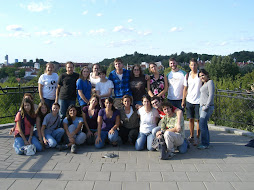
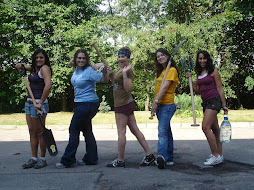
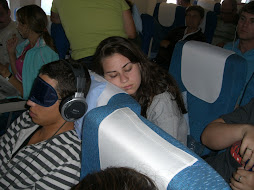
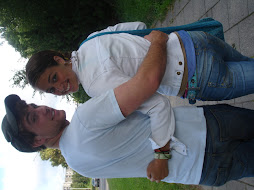
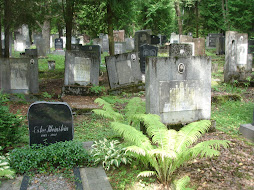
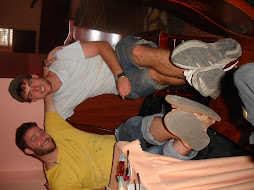
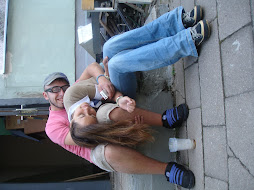
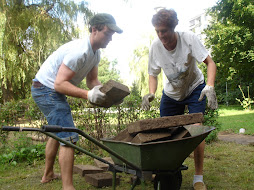
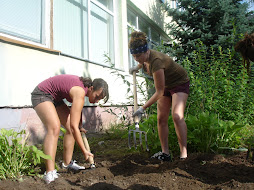
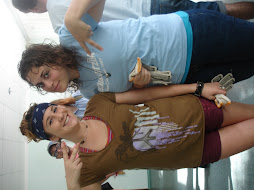
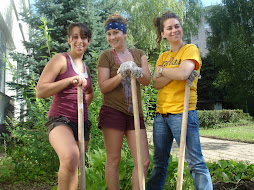
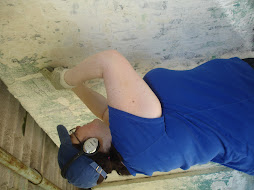
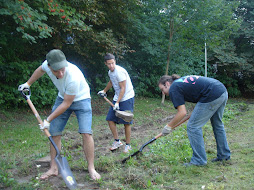
No comments:
Post a Comment